1 Comment
Scripture Readings: Ezekiel 37:1-14 | Psalm 130 | Romans 8:11-16 | John 11:1-45 Jesus said to her, “I am the resurrection and the life. Those who believe in me, even though they die, will live, 26 and everyone who lives and believes in me will never die. Do you believe this? One of the joys of being forced to stay at home with a six-year-old is that you get a pretty good excuse to play. Earlier this week, after the snow had arrived, our family made a snowman in our front yard It was pretty adorable, in my humble opinion… especially as I had no hand in its original design. Sadly (for the snowman), as the weather changed our creation began to change too, almost melting away in a very short time. This called, of course, for an intervention on our part, and we stepped in to “do something” to keep our snow-friend around. After a fair amount of ‘re-snow-rative surgery’, it seemed we had given our snowman a second chance at life… but judging by his appearance Saturday afternoon… I’d say his days are likely numbered.
Despite our best efforts, we will soon lose our snow-friend. We know there are all-too real limits to our ability to continue to renew him, and to pretend otherwise won’t really do us any good. The warm weather will come, the temperature will rise, and one day soon we will have to say farewell for good. As we all continue to adjust to the changes brought about by the COVID-19 pandemic (something we are all no doubt getting sick of hearing and talking about), there seems to be a similar kind of tension going on in the various spheres of our lives and perspectives on the days to come: On the one hand there are lots of examples of the desire to renew or simply keep things going as best we can… using our creativity, perseverance, our technologies, and co-operation to try and preserve the relatively stable way of life that we have come to know. There are many such examples that we do well to pay attention to, and I hope we can be inspired to creatively do our parts as well to support, encourage, and strengthen each other and our communities. But on the other hand, there is also a growing sense that there are some big things in our world that have really changed for good… that despite our best efforts to ‘hold it all together’, there will be no simple fix on the horizon ahead. There is no guarantee that in a few weeks, or months, or more, we will ever get back to our old “normal” again. Our world it seems has been changed, and for the time being at least we must wait to find our what our ‘new’ world will have in store. There is plenty that we can (and should) be doing in this changing and challenging time, but I believe we also need the humility to recognize our limitations, and to look for a source of hope that is bigger than ourselves. Our Scripture passages this morning point us in this needed direction: towards the hope we have, revealed through the workings of the Living God… not simply for our restoration, but for our transformation. Not bringing things back to ‘normal’, but bringing about God’s New Creation… His New, Eternal Life. Beginning with the powerful vision given to the prophet Ezekiel, we too are invited to trust in the Lord, even when everything has come undone and all reasonable hope seems lost. Ezekiel was a prophet in a time of great upheaval. Along with most of the leadership of the Kingdom of Judah, Ezekiel (a priest) was carried off into exile in Babylon. Cut off from his homeland, his vocation, and his whole way of life, he and the rest of the exiles had to adjust to this completely horrid “new normal”, and grieve the people, the stability, and the lives, the world that they had lost. For a while, some were optimistic that their exile would soon be over. They held out hope that soon they would be able to return home to Jerusalem and get busy restoring things to the way they had been before. But when the news came that Jerusalem had now been utterly destroyed by Babylon, that everything they had known back home was truly gone for good, many of the exiles felt completely crushed. As far as they could see, God had abandoned them, and as a people they were now basically as good as dead. “Our bones are dried up, and our hope is lost; we are cut off completely.” But as we read this morning, God had not abandoned His people. They had been humbled, yes, and had been made to face the consequences of their unfaithfulness, but in mercy the Lord offers them this powerful vision of hope: a valley of bones completely dried up, without any future at all… yet re-created, restored, and revived by the life-giving Spirit of God. What was beyond all reasonable hope, Ezekiel is told, is not beyond the Living God’s ability to accomplish: Judah need not give up hope, for God had not given up on them. He would (and did!) come to their rescue again. And yet, the point of the promise was not simply to show that “God is going to undo all the damage done”… the purpose was to re-create His persistently unfaithful people into a new community, one completely convinced in His gracious saving hand, and committed to their merciful Lord with all of their heart. Ezekiel’s vision evokes hope, but it also calls for faith… faith that results in actual changed hearts and lives. Though still having to face exile for many years to come, God’s people were being asked to place their trust firmly in Him, and to live in their ‘new normal’ as those re-created through faith. Turning now to our Gospel reading, we are invited to see God’s life-giving power and purposes at work, not through a hopeful vision, but through the actual revival of a dead man: Lazarus. This is a dense and potent chapter near the heart of John’s Gospel, revealing not simply the power, but the purpose, the mission of Jesus, and poignantly foreshadowing the events of Good Friday and Easter to come. We heard how Lazarus’ family had sent messages to Jesus, pleading with Him to come and heal their brother who was on the brink of death. We heard how, surprisingly, Jesus waits until His friend had died before making the journey to Bethany, and the pain and confusion and ‘if only’s’ that met Him when He finally arrived. We heard that Jesus wept. That He, God’s Son, was moved by grief and sorrow… that He suffered with those who suffer and mourned with those who mourn. We heard how Martha said that if He had only ‘done something’ sooner, Jesus could have kept her brother alive, and her world from falling apart. And we heard His reply, when He said to her: “I am the resurrection and the life. Those who believe in me, even though they die, will live, and everyone who lives and believes in me will never die.” And then asks her: “Do you believe this?” Do you trust me? In our moments of confusion, grief, doubt, and fear His words call to us too. Do we… will we continue to put our trust in Jesus? Even if nothing will ever be the same again? Even if, in our eyes, all reasonable hope is gone? Like Ezekiel’s vision of the valley of dry bones come to life, beyond all hope we heard Christ call the dead man Lazarus up out from the grave. But not simply back to how things were before… I mean, how could they be? After being dead for four days and being brought back to life, how could anyone’s life go back to being ‘normal’ again? In his bones, Lazarus would forever know God’s gracious saving hand, and his whole life now would be a living sign for others to behold, and believe. We will not likely experience the physical transformation that Lazarus did, but we are all summoned to be transformed like him by keeping our faith in Jesus: to let God’s Spirit make its life-giving mark on our own lives, and turn us into signs of hope and of His New Creation at work. As we face the coming days and try to adjust to our ‘new normal’, may our actions and choices (as a parish and individuals), be driven not by desperate attempts to simply ‘get back to the way things were’, or be paralyzed by the fear and despair that ‘nothing will be the same again’, but may we be empowered in all we do by the conviction that the Living God is still graciously at work in our world, and by the hope that, far from being abandoned, you and I are being called to take part in His New Creation, by trusting in and following the One who is “the resurrection and the life.” In Christ, unlike my snowman, are days are far from numbered. So let us hold fast to Him in faith, and serve our Risen Lord of Life. Amen. 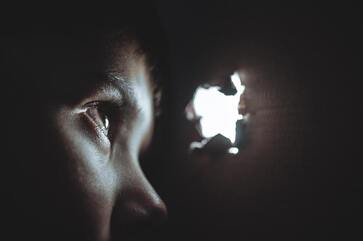 Scripture Readings: 1 Samuel 16:1-13 | Psalm 23 | Ephesians 5:8-14 | John 9:1-41 For once you were darkness, but now in the Lord you are light. Live as children of light— for the fruit of the light is found in all that is good and right and true. Try to find out what is pleasing to the Lord. (Ephesians 5:8-10, NRSV). This past week has certainly been an eventful one, hasn’t it? Last Sunday we were still wrapping our heads around things like ‘passing the peace’ with a wave, light refreshments instead of our weekly fellowship meal, and only sharing the Bread together during Communion. Now suddenly we are required to cease gathering altogether… to worship the Lord as the scattered members of His Church, not to mention all of the other major adjustments in the rhythms of our daily lives. It is amazing how much can change in such a short time. But change is nothing new for us. From the beginning, we Christians have been a people of change, although at times we may have forgotten this important part of our collective past. As individual believers we have each been called into a life of discipleship: of continuous learning and growing and training in the way of Jesus, our Master. And as the Church, we are called to be a community that is aligned to God’s good will, and to be willing ourselves to be realigned to Him whenever we get off track. As St. Paul wrote to the Church in Ephesus, which we read together this morning, though we were once in darkness, in Jesus, we are to leave that form of life firmly behind us… we are to be changed… and now we are to live (together and alone) as children of the light. In our Gospel lesson this morning we heard a dramatic (and enlightening) account of one man’s life-changing encounter with Jesus… how the Living God gave sight, in more ways than one, to a man who was born blind. But first things first, of course. This story does not begin with the man suddenly deciding to change himself… or even with him taking the initiative to ask for help. No, here we are told that it all simply began when Jesus saw the man. Christ saw this man in his blindness… and did not pass him by. In our suffering, or blindness, or darkness, can we believe that Christ sees us? The disciples saw the man too, of course… but not in the same way at all. Rather than be moved with compassion, they instead focused in on his problems… preoccupied with wondering whose fault was it that the man had been born blind in the first place. In those days, (not unlike our own) it was often assumed that physical impairments like congenital blindness were the result of God’s judgment on sin… that someone must have ‘done’ something to deserve that painful lot in life. For the disciples, this man’s predicament had them playing the ‘blame game’; trying to make sense of it all by finding out for certain who is at fault. Before we start picking on the disciples though, we might want to ask ourselves how often we do the same kind of thing… fixating on problems and searching for ‘causes’, but not actually doing much good. Jesus doesn’t answer their question though. At least, not in the way they were expecting. He does not offer them an explanation for the man’s situation. He does not lay any blame or answer their big questions about the causes of human suffering. No, Jesus points them instead to what God’s work, God’s good will actually look like in action: He gives them a glimpse of His New Creation… New Life, beyond all expectations. Disregarding the taboos against working on the Sabbath, Christ makes mud from some dirt and his own spit, rubs it on the blind man’s eyes, and tells him to go wash in the pool named ‘Sent’. We are told the blind (and no doubt confused) man listens to Jesus… he goes and washes himself just as he was told, and miraculously receives full sight for the first time in his life. In an instant, his whole life was changed, completely transformed… and in the same moment, his journey of faith had begun. The rest of our Gospel passage plays out with a comic back and forth between the spiritual experts, who stubbornly refuse to see God’s re-creative work right in their midst, and this unlearned man who had just received his sight… and who is slowly coming to see that Jesus really is the One sent from God to do His divine work: who finds him at last and takes him from living in darkness into the light of faith… re-creating his physical eyes, yes, but even more importantly giving him spiritual eyes to recognize the Living God at work in Jesus… and to believe in Christ wholeheartedly, and worship Him as Lord. This passage from John’s Gospel is a beautiful story of how Jesus completely changed someone’s life: setting them free and drawing them deeper towards the light and life of God. But it is also a story meant to invite us to reflect on our own stories too. How is Jesus drawing us deeper into His light today? How are we being asked to exercise faith in the Living God, and let Him bring about His new creation through us? Like the disciples, it can be easy for us to fixate on all the troubles we see. Especially with all of the uncertainty, suffering, selfishness, and fear at work around us. And like the Pharisees, there are lots of ways we too can resist God’s invitation to share in His light: there are things we can cherish and cling to that keep us back from the life we have been called to live. But in Jesus, we have been made children of God’s light… and are the means by which God wants to share His hope, peace, truth, and holy love with those still in darkness (in whatever form it may take). So how can we take seriously our calling as children of the light? Especially today, as we find ourselves mostly stuck in our homes? First things first, of course: the Christian journey doesn’t start off with us simply changing ourselves, but with listening to and believing in the One who re-creates us. How do we live as children of light? We seek to draw close to Jesus. In faith we seek to let Him draw us deeper into the light and life of God. We pray… not simply sharing our words and worries with the Lord, but we also let go of our own agendas we make room for listening to Him. We read and study the Scriptures, trusting that through these written sacred words that the Holy Spirit is still at work revealing God’s purposes and mission, and is transforming and enabling us to take part in it as well. We worship, intentionally honouring the goodness and glory of God, and orienting our own lives around Him as our Lord. And as we do all this, we keep our eyes open… we actively look for ways that He might be opening up for us to share in His re-creative work. We ask Christ to show us those people (maybe they’re right before our eyes), that He wants us to reach out and help, or comfort, or challenge, or connect with. And we ask Him to show us what we need to let go of so we can be free to do His will. So let us commit to persevering in prayer (for ourselves, for each other, and for our world), to listening to the Scriptures, and turning our hearts to God in worship, that our Saviour will show us what it means to live in His light today. Amen.
Jesus Saviour
(Chorus) Jesus Saviour Come to set us free Jesus Saviour Come and rescue me When I'm afraid Lord please comfort me When I am lost Lord please come find me (Chorus) When I'm angry Lord please bring me peace When I am hurt Lord please heal me (Chorus) When I do wrong Lord please forgive me When I need You Lord please be with me (Chorus)  Scripture Readings: Exodus 17:1-7 | Psalm 95 | Romans 5:1-11 | John 4:5-42 “But we also boast in our sufferings, knowing that suffering produces endurance, and endurance produces character, and character produces hope, and hope does not disappoint us, because God’s love has been poured into our hearts through the Holy Spirit that has been given to us.” (Romans 5:3-5, NRSV). One of my favorite cartoon strips of all time is Calvin and Hobbes. Does anyone remember that one? For those of us unfamiliar with this brilliant work of illustrated literature, Calvin and Hobbes is about the imaginative life of a young boy and his stuffed tiger. Together they get into all sorts of trouble and have amazing adventures, and Calvin often ends up butting heads with every adult around. Not that it usually does him much good, in the end. Time and again, we readers find Calvin grumbling and complaining about the cruelty and injustice of adults, especially his parents, when they ask him to do his homework eat his supper or finish some chores. Against all of Calvin’s complaints when things don’t go his way, his unsympathetic father usually resorts to repeating the same simple response: “just do it anyway… it builds character.” Whatever unpleasant, or difficult tasks lie ahead they should just be endured… because suffering, apparently… builds character. Unsurprisingly Calvin doesn’t find this message all that compelling, and he often ends up suspecting that his parents are out to get him; that they really don’t care about what’s best for him. That ultimately, he (and Hobbes, of course) have to fend for themselves. This past week it seems like everywhere you turn, there’s more news about COVID-19: This new respiratory virus that has captured the minds it appears, of our entire world. There’s a lot of fear and anxiety driving the actions of many: fear of not having enough of the things we need; fear of suffering, sickness and death, both for ourselves and our loved ones; and for a whole lot of us there’s also just the plain old fear of the unknown, as everything around us seems suddenly so unstable. These are not necessarily unreasonable fears, by the way. As a friend reminded me yesterday: this is especially true for the most vulnerable. For the poor, for our elders, for those with other health complications, there is a lot at risk right now… especially if the rest of us choose to give our own fears free reign and turn our backs on our neighbours, only looking after ourselves. It’s OK to feel afraid at times. But what we do when we’re faced with our fears, really does matter, especially if we are called to care for those around us. So as disciples of Jesus Christ, how are we called to respond? How should we react in genuinely fearful situations? We know we shouldn’t panic, but then what should we do? Just suffer through it? Does our passage from Romans command us to simply endure it all? Is St. Paul, like Calvin’s uninspired and un-sympathetic father telling us: “just to suck it up” because whatever difficulties we might have to face “builds our character”? Is that all the hope that we have to hold onto? Today we heard in the Scriptures another story of when God’s people had to face a genuinely fearful situation, and this story opens up for us a way to answer that question. The book of Exodus tells of how the LORD rescued Israel, delivering them from slavery in Egypt and setting them free to live with Him. Our reading takes place in the early days of Israel’s rescue: not too long after all the plagues, and the parting of the sea, and just after the LORD provides them with manna, food from heaven. All along this journey so far God had graciously, and patiently led His people to freedom, as they stumbled along after Him into the unknown. And today we heard, how they ended up in the wilderness without water. They were faced with a frightening shortage of one of their most basic needs. In their genuine fear of thirst, suffering, and death, (which I think all of us can completely understand), the Israelites turned against their LORD: calling into question His integrity and goodness, and also His ability to ultimately save them. “Why did you bring us out of Egypt, to kill us and our children and livestock with thirst?” They could only conclude, it seems, that God didn’t care. That the LORD would bring them all that way, then abandon them to die. How often are we tempted to believe the same as they did? That the Living God ultimately doesn’t care about us? When we’re faced with the unknown... with our own insufficiencies… with the grim possibility of our suffering or death… When we are genuinely afraid, we are also being asked to answer this question: “Do we still believe that God actually loves us? Will we continue to believe that the LORD really cares?” Despite all their doubts, and their ungratefulness, this part of the story of Exodus, of Israel faltering out of fear, gives us a glimpse into the grace of the Living God and points us to the source of our own enduring hope. The LORD does not leave even His unfaithful people to fend for themselves, or tell them simply to “suck it up” and endure their sufferings quietly. No, mercifully... miraculously… the LORD still delivers them, pouring out life-giving water as Moses strikes the rock. The LORD remains faithful and cares for His people, even when they had failed to trust in His saving love. This sacred story invites us to learn from Israel’s early failure, and to hold onto our faith when we are faced with genuine fear. To entrust ourselves again to the saving love of our LORD, and to place our hope firmly in Him whatever comes our way. Even when we can’t seem to see the way forward anymore. Even when we don’t seem to have all that we need. Even when we are faced with suffering, loss, or death: God is asking us to trust Him, to trust in His enduring love.. a love ultimately made known in the crucifixion of Jesus. Just as Moses struck the Rock and God’s gracious water poured out to spare His people, Christ was stricken for our sake “while we were still sinners” to bring God’s saving life to us and to our world. When our genuine fears would have us question whether or not God really loves us, let us turn again and again and again to the cross of Christ. That is what St. Paul urges the Christians in Rome and us, to do: Not simply to suffer in silence, in order to “build our character”… but rather to face whatever lies ahead by trusting in God’s saving love which can turn even our sufferings into a source of hope: Excuse the long quotation, but let us hear our reading from Romans again as St. Paul anchors our confidence in the saving love of Christ: “Therefore, since we are justified by faith, we have peace with God through our Lord Jesus Christ, through whom we have obtained access to this grace in which we stand; /and we boast in our hope of sharing the glory of God. And not only that, but we also boast in our sufferings, knowing that suffering produces endurance, and endurance produces character, and character produces hope, and hope does not disappoint us, because God’s love has been poured into our hearts through the Holy Spirit that has been given to us. For while we were still weak, at the right time Christ died for the ungodly. Indeed, rarely will anyone die for a righteous person—though perhaps for a good person someone might actually dare to die. But God proves his love for us in that while we still were sinners …Christ died for us. Much more surely then, now that we have been justified by his blood, will we be saved through him from the wrath of God. For if while we were enemies, we were reconciled to God through the death of his Son, much more surely, having been reconciled, will we be saved by his life.” What are we Christians to do when we’re faced with genuine fear? We are not asked to ignore them… to pretend they are not real. But fears and all, we’re called to look to our Saving LORD in faith. To lean on Christ’s life-giving love and let Him lead the way as He calls us to genuinely care for those all around us… and to share the hope we have in Him through our words and our actions. Through the Holy Spirit at work in us, may this be so. Amen. 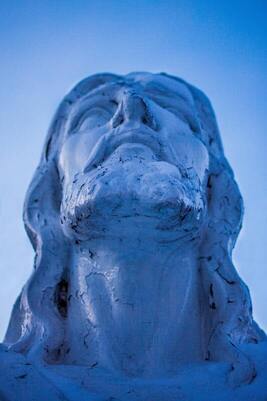 Scripture Readings: Genesis 2:12-17, 3:1-7 | Psalm 32 | Romans 5:12-19 | Matthew 4:1-11 For just as by the one man’s disobedience the many were made sinners, so by the one man’s obedience the many will be made righteous. (Romans 5:19, NRSV). How do we stay faithful when faced with temptation? God’s people have been wrestling with this question for ages. From the beginning we have come to know that as we seek to live God’s way, we will have to face all sorts of snares, obstacles, and outright lies… which aim to distract and direct us away from our gracious LORD. So Christians throughout the ages have tried to come up with plans and strategies in order to help to keep us on the straight and narrow path. For instance: When I was a teenager, back in the late 1990’s and early 2000’s, there was one particular trend that I can remember well: does anyone else here remember WWJD? It’s a slogan often printed on bracelets or other simple objects, that stands for “What Would Jesus Do?” The idea was that when faced with a morally confusing or tempting situation, we should just ask ourselves the question: ‘What would Jesus do here?’ and our answer would help us figure out the right way to respond, to clarify for us how we too can be good, what it is that we can do to act more like Jesus would. As well-meaning, and practical, as this catchphrase might seem to be, we are led in a very different direction by the Scriptures this morning. Instead of having us ask the question ‘What would Jesus do?’, we are being asked to reflect on what it was that Jesus actually did. We’re pointed away from ourselves, and our struggles with how to figure out right from wrong, and pointed towards the one, we are told, has come to set us free. Let’s begin back in the beginning: with our reading from Genesis. Where we heard that originally the Living God placed humanity in Paradise, entrusting it to them and giving them one straightforward command: “You may freely eat of every tree of the garden;” God says “but of the tree of the knowledge of good and evil you shall not eat, for in the day that you eat of it you shall die.” All of God’s good creation stood open before them, just listen to God and don’t eat the fruit of the tree of the knowledge of good and evil. Yet tempted and deceived, humans take and eat the fruit, trusting in serpent’s word they seized upon the temptation to make themselves like God, to know right and wrong for themselves. And their eyes were opened, but so was the rift between them and their Maker, with the shame and guilt of sin now cutting them off from God and the innocent life they had known with Him, instead of living in Paradise they find themselves cast out into the wilderness to fend for themselves. As we may know this is the story of original sin: of the first and fatal fracture in all of God’s good creation, the source of every evil still at work in our world, as we humans cut ourselves off from our gracious Creator and chose to forge our own path… to do things “our way.” In the Scriptures we hear that this tragic turn was more than a one-time mistake, it becomes the familiar enduring pattern of human history as a whole. But alongside this tragic story, beginning with Adam and Eve, running through the stories of Abraham and the Israelites, the Bible insists on offering us this hope: that the Living God has not given up on His people or humanity, but will take action Himself to break this cycle and to turn our story around. And so finally, we are told God comes to our aid through His beloved Son: Jesus, who is led out into the wilderness to bring us back to Paradise, overcoming our failures… with His faithfulness. In our Gospel reading from Matthew we hear of this dramatic encounter between Jesus the Messiah and the tempter: the devil, who seeks to throw Christ off track through a series of three temptations: all designed to drive a wedge between Jesus and His Heavenly Father. First: “If you’re really God’s Son” the devil says, “turn these stones You see into bread. Show your power as the Son of God and take matters into Your own hands, miraculously find a way to satisfy Your own hunger. If God really loved You, surely He would not want You to go hungry.” But Christ does not take the bait. Next, the devil says: “Throw Yourself from the top of the Temple, prove Your faith in Your Father’s rescuing power, show Yourself and all of Jerusalem that You really are God’s Son.” Again, Jesus doesn’t fall for the trap. Finally, the devil goes all in: “Worship me,” he says to Jesus, “and I’ll give you the world. Everything… all power and authority it all can be Yours. You really don’t need God, just bow down to me. Choose Your own path apart from Your Father.” This is the root and goal, after all of every temptation we face: the temptation that is, not to trust God… to not trust in His goodness, His wisdom, His justice, or His mercy… to live as if we are the ones who ultimately know what’s best, and that it’s up to us to make it happen… to see our will be done. And this is the temptation that Jesus overcame, not because He was strong or wise enough to choose to be good, and not to be evil all by Himself, but because again and again Jesus chooses to trust the will of God. As the Son of God made flesh, He specifically DOES NOT choose what is right for Himself... because His whole embodied life was about trusting His Heavenly Father: remaining completely united with the Source of all goodness and life. As Christ’s disciples we too are not called to seek our own independent ‘goodness’, to simply weigh the good and bad in life for ourselves, or even to ask ourselves what we think Jesus would do, and then try to live up to His example as best we can. No, we are called first of all to faith: to believe in Jesus Christ, to entrust ourselves entirely to Him. To the One Who perfectly embodied the good will God, and opened up a way for us to share in it with Him. Christ lived out the prayer: “Not my will, O LORD but Your’s be done.” And led by that trust the innocent One took up our cross for us, and gave His life to reunite us with our graciously Heavenly Father. We are all tempted daily in a variety of ways, but every temptation, at it’s root, is the voice beckoning us not to trust in God. To trust in ourselves & our own judgment, and to doubt His goodness, His holiness & grace… to doubt His love for us, a love which is shown most clearly in the cross of God’s beloved Son: the only completely faithful One who died to save the rest of us. What Jesus did for us is our victory over temptation. It is the means by which God Himself comes to our rescue, exposing the lies that would draw us away from Him, forgiving our sins, and enabling us to follow Him in faith. Christ doesn’t simply show us how to save ourselves from temptation, He overcomes humanity’s disobedience, our disobedience, in order to set us free to be reconciled to God: inviting us to turn to Him in faith and seek His mercy, and through His Holy Spirit, at work in us even now, Christ shares His righteousness with us and helps us to be faithful. When we’re faced with temptations, whatever they may be, we are not simply left to figure out our own way forward. We have a gracious Saviour: Jesus, the faithful One, who came to bring us back out of the wilderness and safe again in God’s arms. Now to him who is able to keep you from falling, and to make you stand without blemish in the presence of his glory with rejoicing, to the only God our Savior, through Jesus Christ our Lord, be glory, majesty, power, and authority, before all time and now and forever. Amen. (Jude 24-25). 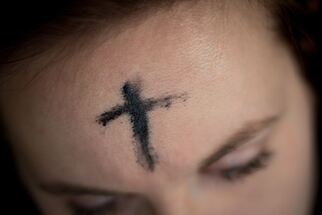 Scripture Readings: Joel 2:1-2, 12-17 | Psalm 51:1-17 | 2 Corinthians 5:20b-6:10 | Matthew 6:1-6, 16-21 Yet even now, says the LORD, return to me with all your heart, with fasting, with weeping, and with mourning; rend your hearts and not your clothing. Return to the LORD, your God, for he is gracious and merciful, slow to anger, and abounding in steadfast love, and relents from punishing. (Joel 2:12-13, NRSV) I love Ash Wednesday. That might seem a bit strange, considering the heavy nature of this day: marking, as it does, the beginning of the 40 days of Lent with self-reflection, acknowledging sin, and an earnest call for repentance. In truth, it is not a comfortable time, but it is a sacred time… a gift from the LORD to His people and intended for our good. One facet of this sacred gift which I deeply appreciate, is the way Ash Wednesday invites us to abandon our pretensions. To get really real, with God, yes, and also with each other. To decidedly set aside all of our attempts to pretend that we have finally gotten ourselves to a place where we no longer need mercy; to cease trying to convince ourselves and others, that we’ve got it all under control. To cut through all the pleasantries and face the truth together. In our Gospel passage taken from the Sermon on the Mount, Christ warns His disciples about the temptations of hypocrisy: of play-acting with our faith… and putting on spiritual performances that does not in truth reflect the reality of our lives. Of using religious practices and holy patterns of life not to seek the LORD or walk in His ways, but to chase our own desires: especially those things that offer us a false sense of superiority: things like honour respect status acceptance. But Ash Wednesday cuts through these false promises and levels the field for us inviting us into a way of life, not grounded in our performance or on the opinions of others, but in the mercy and love of God offered to us all at the foot of the cross. For the cross is ultimately where Ash Wednesday wants to direct our gaze… it is the suffering and death of Jesus that Lent beckons us to remember. Yes, through the prayers and practices of this sacred season: through our Lenten fasts our self-reflection, our offerings, and repentance, we are asked to take a long honest look at our lives. To acknowledge the truth of our brokenness, our limits and our sins, in order for our eyes to be firmly drawn away from ourselves, from both our so-called successes, and from our faults and failures too, so that our hope and faith might be finally fixed on the merciful face of our Saviour… so that we might turn to Christ, who Himself bore our brokenness, limits, and sins so that we might share in His righteousness. Ash Wednesday and Lent do not task us with self-perfection or self-mastery. It is not about finding ways to become better people. No. They invite us to honestly turn our eyes in faith to Jesus our Saviour… and to follow Him in the way of God’s suffering, saving love. This too is a merciful gift to us. As one theologian puts it: "We are able to follow him only because he was able to do what we cannot do, that is, he alone was capable of freeing us from the grip of sin through his cross." (Stanley Hauerwas, Matthew, (Grand Rapids, MI: Brazos Press, 2006), p.75.) From first to last Ash Wednesday reminds us we cannot save ourselves… in truth, we are dust, and to dust we shall return. But it reminds us this in order that we might cling always to our Saviour. To set aside all that would keep us from His gracious arms, and together find ourselves embraced by His steadfast love and mercy, offered to us all through the blood of His cross. I love Ash Wednesday… because it reminds us of the depths of God’s love. This Lent may the Holy Spirit grant that our eyes be always fixed on Jesus, and may our lives be remade by His mercy and love. Amen. To those who have received a faith as precious as ours through the righteousness of our God and Savior Jesus Christ: May grace and peace be yours in abundance in the knowledge of God and of Jesus our Lord. His divine power has given us everything needed for life and godliness, through the knowledge of him who called us by his own glory and goodness. Thus he has given us, through these things, his precious and very great promises, so that through them you may escape from the corruption that is in the world because of lust, and may become participants of the divine nature. For this very reason, you must make every effort to support your faith with goodness, and goodness with knowledge, and knowledge with self-control, and self-control with endurance, and endurance with godliness, and godliness with mutual affection, and mutual affection with love. For if these things are yours and are increasing among you, they keep you from being ineffective and unfruitful in the knowledge of our Lord Jesus Christ. (2 Peter 1:1b-8 NRSV).
In this passage St. Peter reminds us of some very important truths which we can easily lose sight of: the abundant grace and provision of our God and Saviour Jesus Christ; the precious hope we have received through His promises; our calling to turn from our old ways of life that we may share in God’s own nature; and that we must make every effort to support and strengthen our faith with goodness, knowledge, self-control, endurance, godliness, mutual-affection, and love. Travelling this pathway, St. Peter tells us, can keep us from being ineffective and unfruitful as we seek to follow our Lord together as a parish. Since beginning to my time as Priest-in-Charge here at St. Luke’s in late August, I have been so grateful for this community which I have been called to serve. In many ways, these past six months have been a time of learning for me: learning the basics of pastoral ministry and leadership on the ground, but also of learning the rhythms and character of our particular community. I have sought to be respectful and supportive of what has gone on before me, to lead by also being quick to listen to the wisdom and experience all around, and to begin learning about the wonderful and dedicated people who make up our parish. This past fall at Diocesan Synod, every parish was called to participate in two significant initiatives. The first is a five-year worldwide Anglican movement referred to as the Season of Intentional Discipleship, in which we as the people of God are to revisit and turn our attention to one of the primary tasks of the Church: “to equip and grow disciples who in turn go out to equip and disciple others.” This asks us not only to take seriously our own calling to continually mature in the Christian faith, but also to invest in the nurturing of a living faith in others as well. The second initiative is for all parishes in the Diocese to develop and implement a Mission Action Plan in 2020, which is to be a 2-5 year plan to help us focus our efforts and engage with God’s mission in our wider community. The Bishop said this involves taking “a step beyond where we are now… even if that means dropping something internal to take up something external.” Resources will be available in 2020 from the Diocese to assist us in this process. Together, these two initiatives pull us in two directions at once: calling for us to turn our attention inward and clarify our own calling as faithful disciples of Jesus Christ, and also to follow our Lord beyond our own walls and areas of concern to be led by the Spirit to take our part in the Living God’s redeeming work in our community. In addition to these two tasks for us starting in 2020, we also have our ongoing Building Renovation Project, through which we have been tasked with raising significant funds in the near future to enact some much-needed repairs on our beloved church building. All together, this seems like a whole lot to ask of any parish all at once. How are we to go about accomplishing all of this? I would again call our attention to St. Peter’s words to us, reminding us to trust in the abundant grace and provision of our God, whose “divine power has given us everything we need for a godly life”, who calls us as His people to lean on His divine promises, and to make every effort to strengthen our faith through how we live each day. This is, we know, not a guarantee that all our plans will succeed, or that we will not have to face challenging situations and choices. But if most of all we seek to be effective and fruitful followers of Jesus Christ, then this is the adventurous, blessed, and hopeful path that lies before us. Exciting days are ahead of us here at St. Luke’s. May the Holy Spirit give us the grace of clear vision and willing hearts to take our part in God’s Mission, here in Gondola Point and beyond. Respectfully submitted, in the love of Christ, Rev. Rob Montgomery |
Rev. RObRev. Rob serves as the Priest-in-Charge at St. Luke's Gondola Point, and as the School Chaplain at Rothesay Netherwood School Archives
June 2024
Categories
All
|
||||||||||||||||
|
5 Quispamsis Road, Quispamsis NB, E2E 1M2
Mail to: 12 Quispamsis Road, Quispamsis NB E2E 1M2 |
Contact Us
Parish Phone: 506-847-3670 | www.stlukesgp.ca | www.facebook.com/StLukesGP/ Rev. Rob: 506-608-1772 | [email protected] |
Proudly powered by Weebly

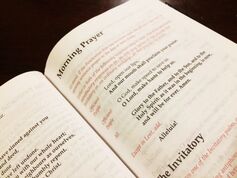

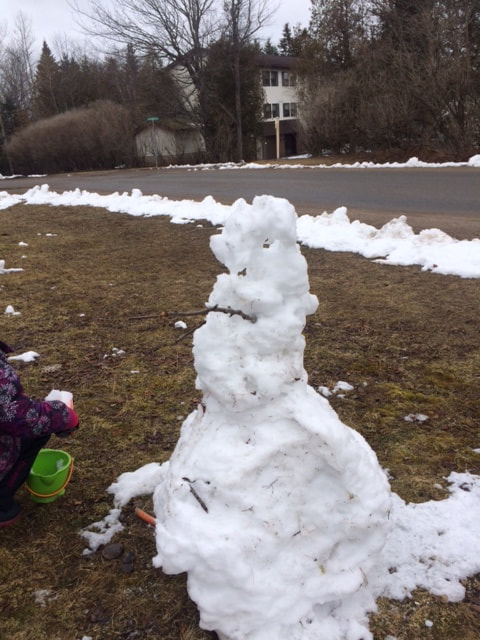
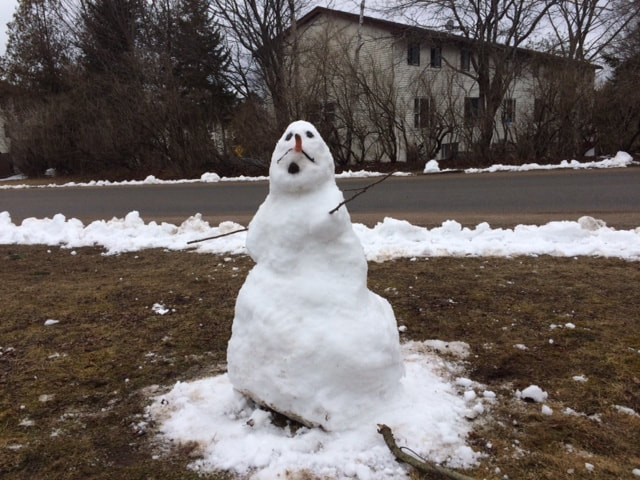

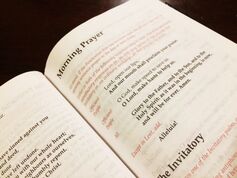

 RSS Feed
RSS Feed
